Summer Reading: 10 Essential Books for Entrepreneurs

It seems like not a day goes by without your social media feed being peppered with posts of the “I hate my boss/job” variety. If not posts from friends, then it’s a clickbait story about someone who never considered going into business for him or herself and then doing just that.
If the success of Gimlet Media’s StartUp podcast and last year’s Christmas hit Joy starring Jennifer Lawrence as Miracle Mop tycoon Joy Mangano are any indication, folks are feeling cramped, boxed-in, suffocated, and you-name-it by the rigid demands of 9-5 corporate culture and are actively seeking alternatives.
Now more than ever is a wonderful time to take advantage of the intellectual resources at our fingertips and control how, when, and where you make your cheddar. For those who long to be their own boss, take a gander at these 10 must read books for entrepreneurs so you can side-step common rookie mistakes.
Best Books for Entrepreneurs
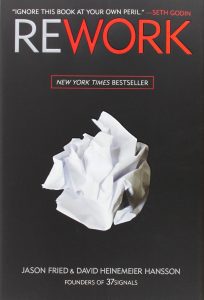
Rework by Jason Fried and David Hanson
Jason Fried, founder of Chicago-based web developer Basecamp (from which the open-source Ruby on Rails framework was extracted) and one of the 2006 MIT Technology Review’s top 35 innovators under 35, co-wrote Rework with David Hanson about “new ways to conceptualize working and creating.” According to the book’s description, “You don’t need to be a workaholic. You don’t need to staff up. You don’t need to waste time on paperwork or meetings. You don’t even need an office. What you really need to do is stop talking and start working.”
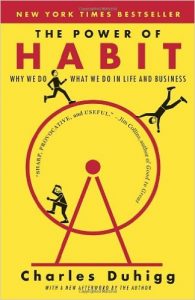
The Power of Habit by Charles Duhigg
In The Power of Habit, Harvard MBA and New York Times business reporter Charles Duhigg investigates the origins of habits and how the right ones were “crucial to the success of Olympic swimmer Michael Phelps, Starbucks CEO Howard Schultz, and civil-rights hero Martin Luther King, Jr.” In The Power of Habit, Duhigg posits that the “key to exercising regularly, losing weight, raising exceptional children, becoming more productive, building revolutionary companies and social movements, and achieving success is understanding how habits work.”
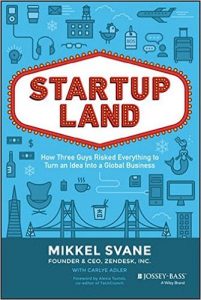
Startupland: How Three Guys Risked Everything to Turn an Idea into a Global Business by Mikkel Svane
Startupland is a Silicon Valley-era spin on the classic rags-to-riches parable. Written by Mikkel Svane, CEO and founder of wildly successful Danish software company Zendesk, he enlightens and entertains with details on each step (and misstep) between the moment he and his buddies left “secure jobs to start something on their own, how he almost went broke several times, how they picked up themselves and their families to travel across the world to California and the unknown, and how the three friends were miraculously still together for Zendesk’s IPO and (still growing) success.”
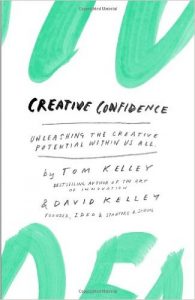
Creative Confidence by Tom and David Kelley
Legendary “design thinker” and Stanford Professor David Kelley, whose firm IDEO was responsible for Apple’s first mouse, the first Treo, and the thumbs up/down button on the Tivo remote control, co-wrote The Art of Innovation with his brother Tom, an executive fellow at Haas School of Business at UC Berkeley and “leading innovation speaker.” In it, the Kelleys “identify the principles and strategies that will allow us to tap into our creative potential in our work lives, and in our personal lives, and allow us to innovate in terms of how we approach and solve problems.”
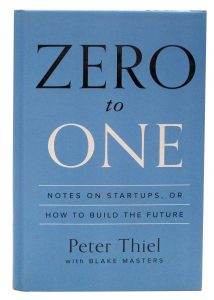
Zero to One by Peter Thiel and Blake Masters
PayPal founder and Silicon Valley V.C. legend Peter Thiel (early investor in Linkedin, Yelp, SpaceX, and Airbnb) uses Zero to One as a platform to illustrate ways “progress can be achieved in any industry or area of business.” According to Thiel, “Copying others takes the world from 1 to n, adding more of something familiar. But when you do something new, you go from 0 to 1. Tomorrow’s champions will not win by competing ruthlessly in today’s marketplace; they will escape competition altogether, because their businesses will be unique.”
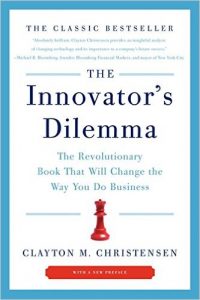
The Innovator’s Dilemma by Clayton M. Christiansen
Harvard Business School Professor Clayton Christensen and former BCG management consultant is “regarded as one of the world’s top experts on innovation and growth.” Named one of the six most important books about business ever written in 2011 by The Economist, The Innovator’s Dilemma is a multi-industry study into how, paradoxically, “the same practices that lead a business to be successful in the first place can also result in their eventual demise.”
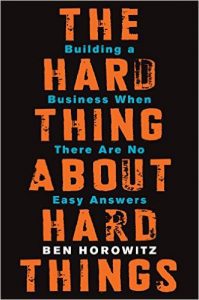
The Hard Thing About Hard Things by Ben Horowitz
In The Hard Thing About Hard Things, Ben Horowitz, co-founder of Silicon Valley V.C. firm Andreesen Horowitz, connects hip-hop aphorisms from the likes of Kanye, Nas, Rakim, Biggie, Chuck D, and Big Daddy Kane, among others, with “insights he’s gained developing, managing, selling, buying, investing in, and supervising technology companies.”
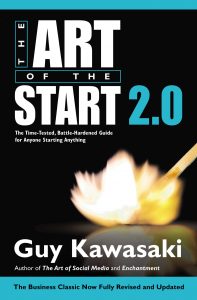
Guy Kawasaki, former Apple and Current Canva evangelist, UCLA-Anderson MBA, and UC Berkeley’s Haas School of Business Executive Fellow, authored The Art of the Start as a “weapon of mass construction.” The book eventually became “the de-facto standard for learning how to start a company.” Version 2.0 features Kawasaki’s “latest insights and practical advice about social media, crowdfunding, and cloud computing.”
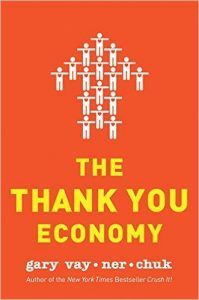
The Thank You Economy by Gary Vaynerchuk
Gary Vaynerchuk, proprietor of VaynerMedia, VaynerRSE, venture capitalist (see: Facebook, Twitter, Tumblr, Uber), one of Fortune’s 40 under 40, and a Belarus-born Jersey boy, made his fortune after college when he expanded his family’s wine business to a $60 million enterprise. In The Thank You Economy, Vaynerchuk elucidates how modern businesses that “can shift their culture to be customer-aware and fan-friendly” by harnessing the “word-of-mouth power from social media” will be the ones to “pull away from the pack and profit.”
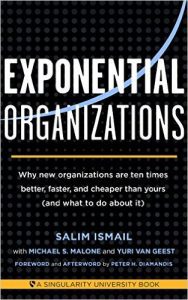
Exponential Organizations by Salim Ismail
“Exponential Organizations” are those that leverage “openness, transparency, and abundance” to “close the gap between the linear organization and its exponential environment.” Salim Ismail, a former VP at Yahoo! and current executive director of Singularity University – a “disruptive technologies” incubator – wrote the Amazon No. 1 Best-Seller in Business Management Exponential Organizations to illustrate an innovative new organizational model that offers a rate of growth up to 10x faster than linear competitors.
